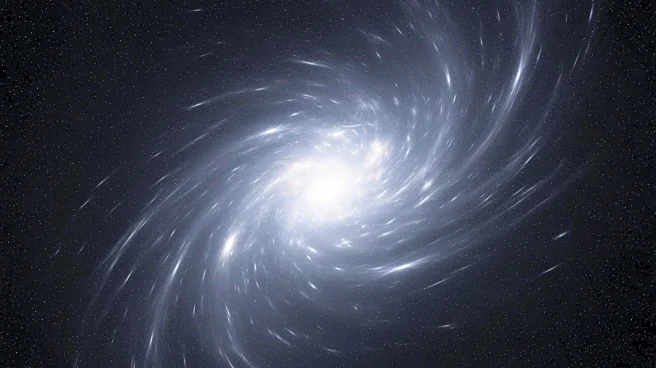What's Happening?
Recent research indicates that dark energy, traditionally thought to be a constant force driving the universe's expansion, may actually be dynamic. This challenges the long-standing cosmological constant model
introduced by Einstein. The study, conducted by Josh Frieman and Anowar Shajib, analyzed data from various cosmological surveys and found that models of dark energy that evolve over time fit current observations better than the static model. The research suggests that dark energy's density has decreased slightly over the past several billion years, hinting at a new particle in nature.
Why It's Important?
This discovery could significantly alter our understanding of the universe's expansion and the fundamental forces at play. If dark energy is indeed dynamic, it may lead to new insights into the universe's fate, potentially avoiding scenarios like the Big Rip or Big Crunch. The findings also open up new avenues for research into the nature of dark energy and its role in cosmic evolution. This could have profound implications for theoretical physics and cosmology, challenging existing models and prompting the development of new theories.
What's Next?
Future observations from upcoming surveys like the Dark Energy Spectroscopic Instrument (DESI) and the Vera Rubin Observatory are expected to provide more data, potentially confirming or refuting these findings. These surveys will help determine whether dark energy is truly evolving and refine our understanding of its properties. The scientific community will likely focus on developing new models to explain these observations and explore the implications for the universe's long-term behavior.










